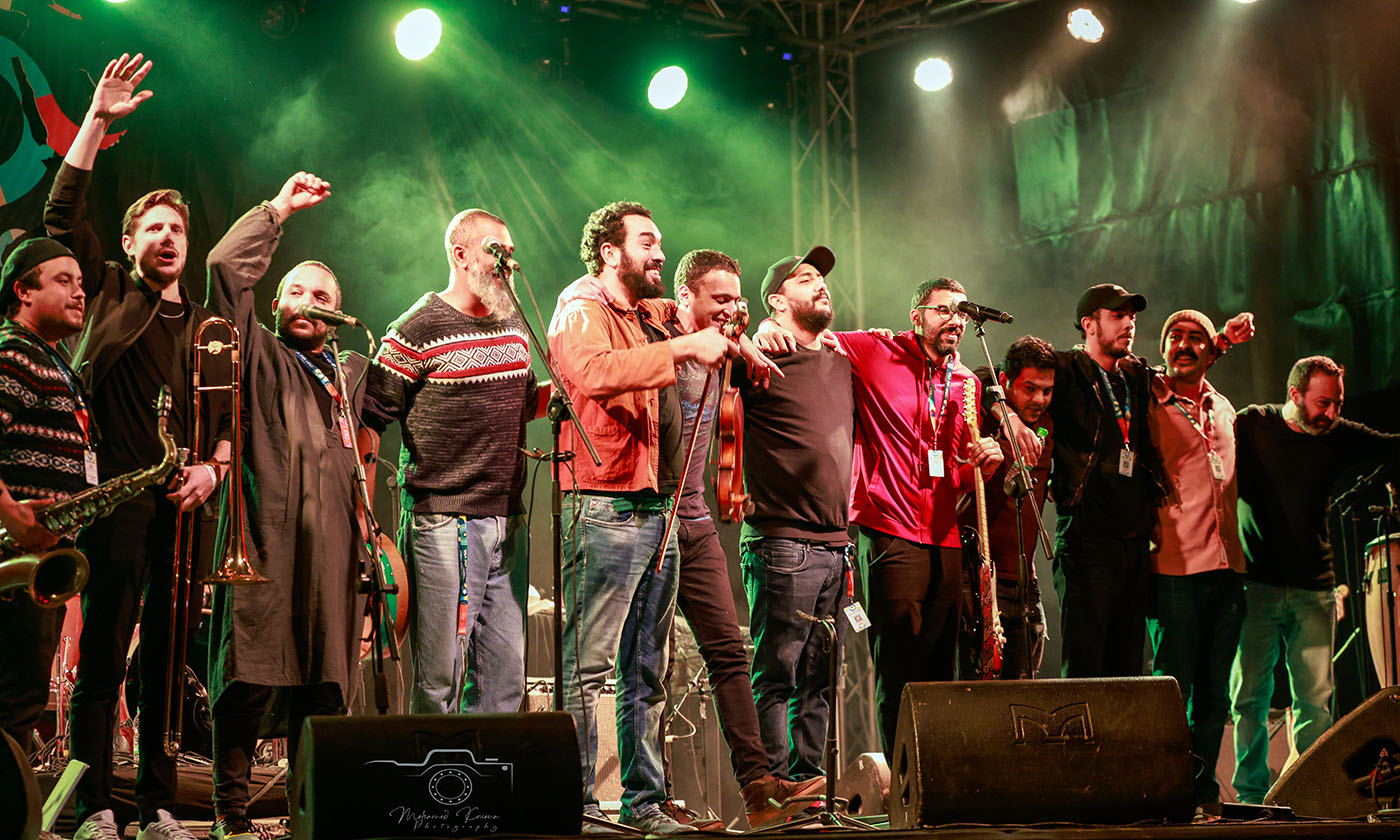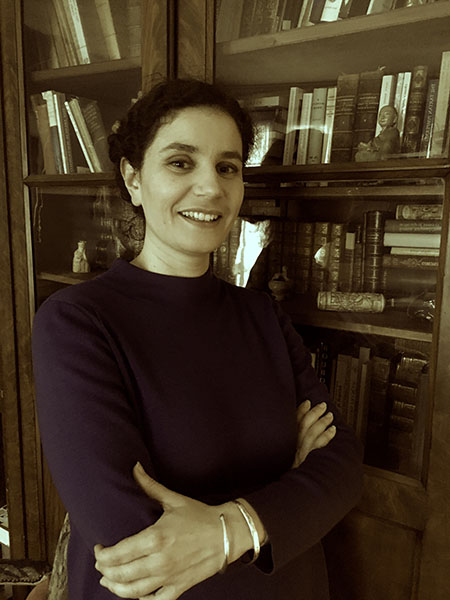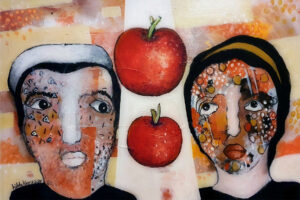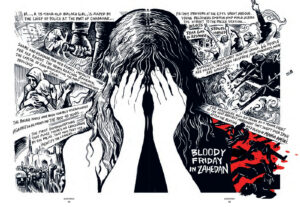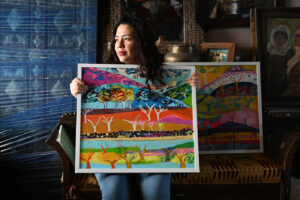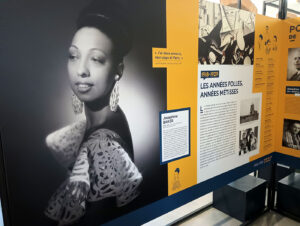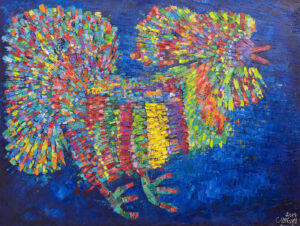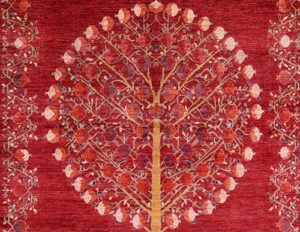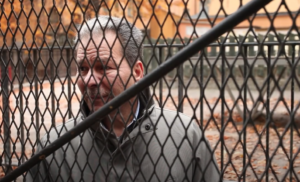This Tunisian neo-reggae group caught our music critic’s attention, and for good reason.
Melissa Chemam
Underground music, and reggae in particular, have a strong tradition of supporting calls for freedom. From Bob Marley in Jamaic (think about the lyrics of ‘Redemption Song’) to Tiken Jah Fakoly in the Ivory Coast and Zebda in France, reggae music has carried the demands for political activism, social justice and the rights of the forgotten.
In Tunisia, the band Gultrah Sound System carries that flag.
Founded in 2006 by three friends, Halim Yousfi (guitar, vocals), Wissem Ziadi (violin, choir) and Malek Halim (percussion, choir), Gultrah started with a series of concerts in Tunis, then in Algeria and in Belgium. A decade later, they were considered by many as one of the pioneers of the Tunisian underground music scene, and one of its best bands.
Rooted in reggae, they also mix sounds of afrobeat, funk and jazz. They recorded their first demo, “Jazz Fizzenga” in 2008.
“The group is very popular,” journalist and editor in chief of Nawaat Media, Thameur Mekki, tells me. Until 2012, “they were only known in alternative, even dissident, cultural circles,” he adds. Then Gultrah’s music circulated online, so when they returned to the stage in 2012, “their established grassroots base gradually expanded with each show.”
In 2012, new members joined and with them a new rap-reggae influence. And until 2013, the band released new albums and started touring intensely.
“It’s difficult to produce this kind of music in Tunisia,” Thameur Mekki explains. “There is a lack of infrastructure. This scarcity implies costliness. And there is no record market. Subscriptions to digital platforms are starting to rise. But [scarcity] is still dragging on, mainly because of an ultra-protectionist monetary policy. As a result, the only source of income for such music is live performance.”
After another four-year break, Gultrah Sound System came back in 2019 with a new line-up, a double album and an international tour. At the time the Tunisian national La Presse wrote: “Halim Yousfi, leader of the group, is undoubtedly one of the most important leaders of the new Tunisian musical scene with his committed words, in their form and in their content, and his sincere and eloquent alternative proposals.”
Their most recent song, “Tejri,” was released in January 2022 via the official channels of their record label.
In this song, “Tejri” or “running in English,” the refrain goes: “You spent your whole life running / But you could only get so far / The years flew past you unawares /Enslaved by those in control / You spent your life running / Same old things on repeat.”
According to Tunisian music researchers, under the Ben Ali regime, music like reggae and all such fusion formats were largely considered politically incorrect, mostly because of the lyrics and strong language, and its association with political struggle.
That’s obviously why underground bands passionately embraced reggae long before the Jasmine Revolution and even more afterwards.
Carried by the particular voice of their leader, Halim Yousfi, the Gultrah Sound System use humor and derision in their lyrics, to tackle themes related to the daily realities of the human, in a general way, and of the Tunisian in particular.
They sing in Arabic and sometimes add words in English. In their song, “Mechin,” they also sample political discourses in English that describe the harsh reality of the poor and their struggle.
“Their lyrics are engaged,” says Thameur Mekki. “They’re bold, grounded, well rooted in popular slang.”
Dealing with the harsh life of ‘Tounsi” (the Tunisian), the group is anchored in realities alternating gravity and humor to describe and sketch the Tunisian society.
I contacted Halim and he kindly shared with me accurate translations in English of some of their lyrics.
On the track”‘Elli tchelou” the band states: “This one’s for those who were snatched right at their doorsteps / And haven‘t turned up to this day / Tunisians are afraid of their own shadows / of the treacheries of time, countless are those degraded in prisons / This one’s for those who died in humiliation and disgrace / for speaking the truth Tunisians are afraid of their own shadows, /from the treacheries of time, countless are those degraded in prisons.”
Halim is known for his “big mouth,” which “does not mince words,” not hesitating to swear if need be. He’s been praised for his sincerity, his “uncontained revolt,” a provocative side and a great sensitivity. Like many reggae legends, he uses a singing style that is close to hip-hop’s rapping, a mix between speaking and singing.
In the song “Jondi” (Soldier), he sings: “They closed every border, shut down every door / They divided us, made us believe we’re a third world / Shia, Sunna and the goddamn Muslim brothers / You’re trafficking everything away while I’m starving to death.”
In his paper, ‘The Language of Hip hop and Rap in Tunisia: Socio-Cultural Mirror, Authenticity Tool, and Herald of Change,” the Tunisian researcher Zouhir Gabsi writes: “By adhering to the socio-economic reality of the Tunisian street, rappers attempt to claim authenticity in both thematic and language use, and by usurping the power of ‘space’ from the regime’s control. With the songs’’ fast-paced rhythms, catchy phrases, puns, vulgarisms, and linguistic innovations that use metaphor, hip hop and rap.”
These elements of style, which are often used in Gultrah’s reggae, have definitely struck a chord with Tunisia’s youth, many friends telling me how respected the band are among progressive voices.
“Tunisia’s new social reality has allowed Tunisian rappers to express dissent and voice people’s despair over the socioeconomic and political situation,” adds Zouhir Gabs. “The language and themes of rap and hip hop music offer a cultural mirror which shows the other side to the reported success of the Arab Spring in Tunisia.”
The Gultrah Sound System is preparing a tour for summer 2023, with a dozen dates in France and Spain, from June to July, including one at the Rototom Sunsplash, the European Reggae Festival of Benicassim.
Despite this year’s climate of threat against freedom of speech, they will certainly not stop performing their messages and calls for social justice, resonating across all the Arab world.
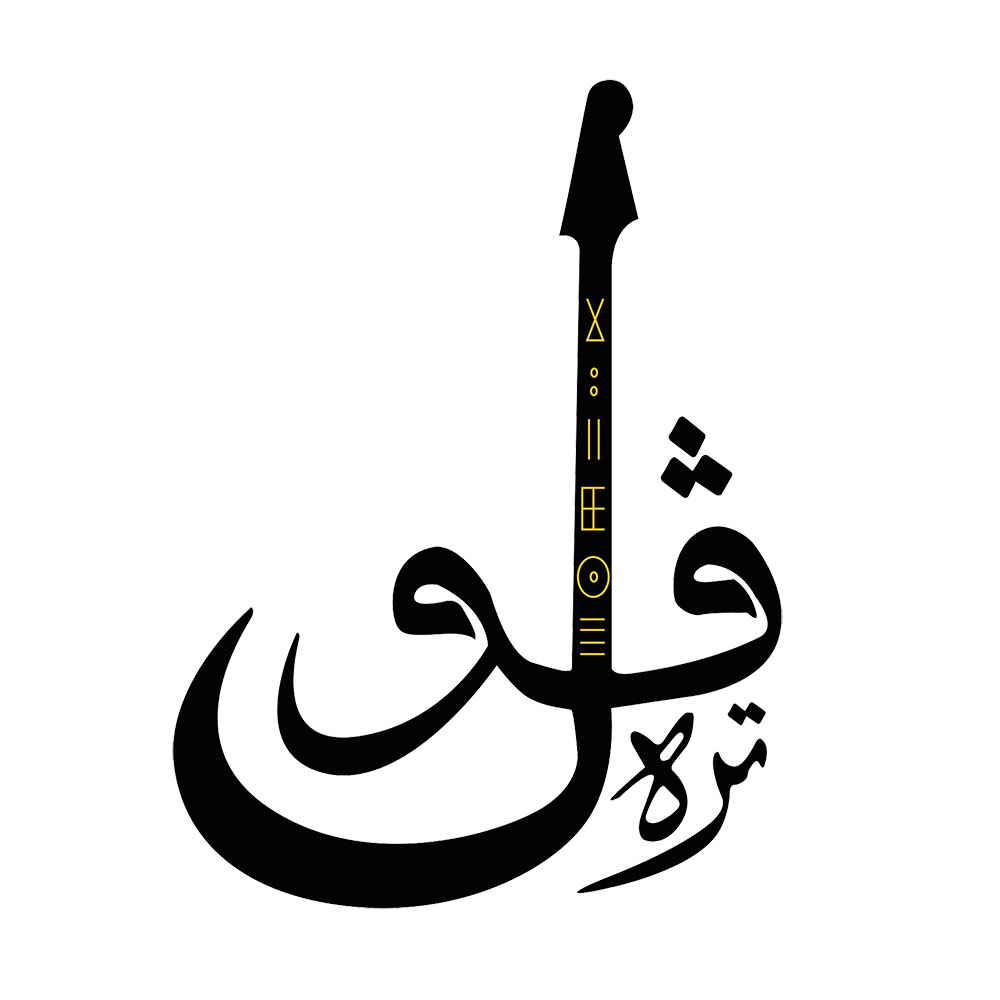
The Gultrah Sound System line-up:
Halim Yousfi: vocals/guitar
Kais Fenni: bass
Tarek Maaroufi: drums
Wissem Ziadi: violin
Khalil Hermassi : percussion/drums
Edouard Wallyn: trombone
Chiheb Baazaoui : saxophone
Mohamed Ben Said : trumpet
Mohamed Amine Khaldi : keyboards
Fourat Neffati : guitar



